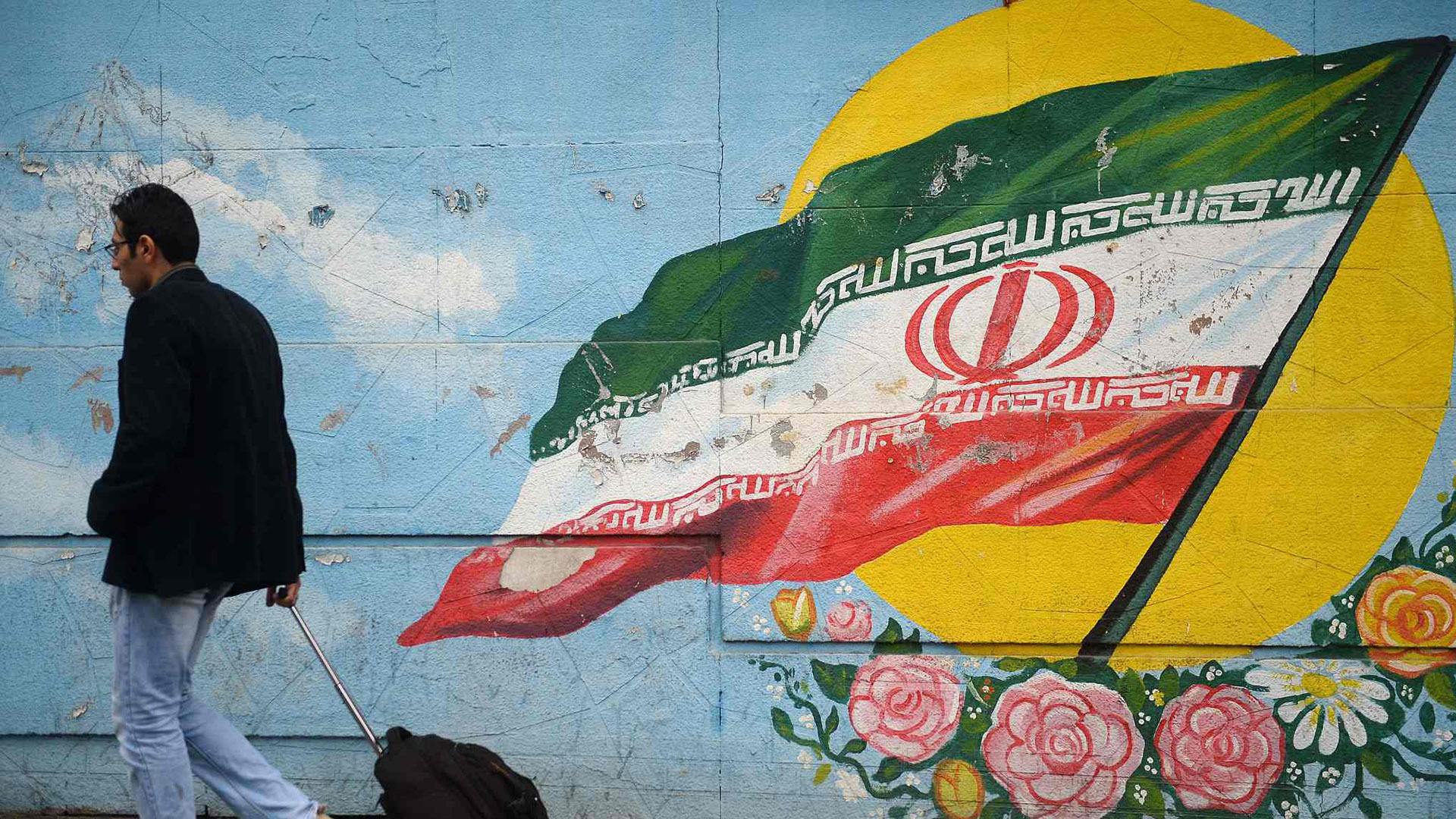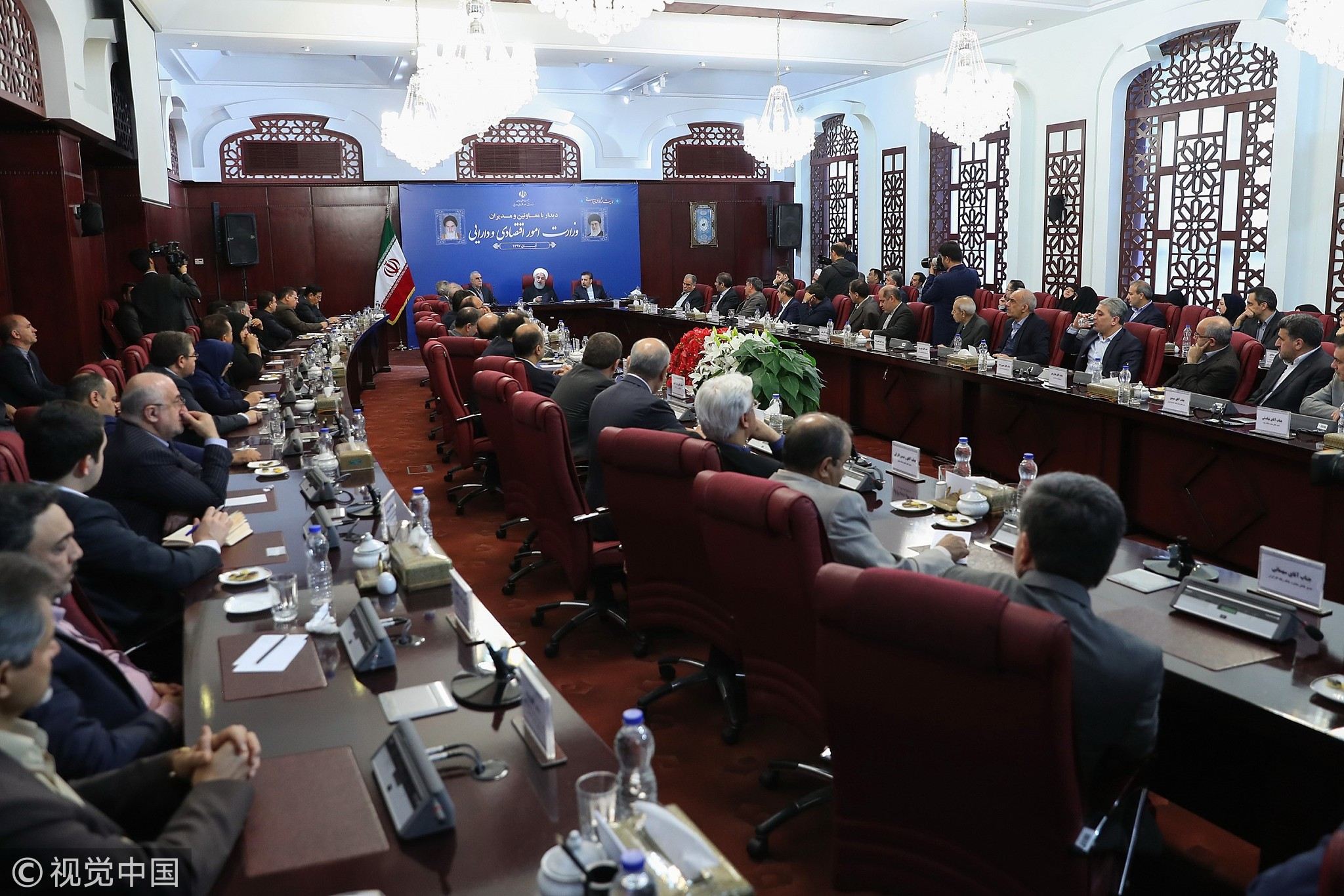
Opinions
13:38, 07-Nov-2018
Opinion: Will Iran weather US sanctions this time?
Updated
13:18, 10-Nov-2018
CGTN's The Heat
01:19

During Barack Obama's administration, the United States, Russia, Britain, France, Germany and Iran reached an agreement in 2015 to restrict Iran's development of nuclear weapons in return for international community lifting sanctions against Iran.
In May this year, the US President Donald Trump decided to withdraw from the Iranian nuclear deal and resume serious economic sanctions against Iran, saying the agreement was unreasonable.
In August, the US restarted a series of non-energy sanctions on Iran's finance, metals, minerals, and automobiles areas.
In November, the US restarted the second batch of sanctions for energy and finance.
The US Treasury Department issued a notice on November 5 that it will impose sanctions on more than 700 individuals, entities, aircraft and vessels involved financial, shipping, aviation, energy and other fields in Iran from the day. A new wave of economic sanctions on Iran took effect on Monday.
Meanwhile, the US government is focusing on Iran's biggest export-oil. But, it granted temporary waivers to some of Iran's biggest trading partners.
Iranians took to the streets over the weekend to protest against the sanctions. The government said it won't be cowed by sanctions.

Iranian President Hassan Rouhani attends a meeting with directors and deputy ministers of economy and finance in Tehran, Iran, November 5, 2018. /VCG Photo
Iranian President Hassan Rouhani attends a meeting with directors and deputy ministers of economy and finance in Tehran, Iran, November 5, 2018. /VCG Photo
From the perspective of Iran, the new round of sanctions is generalized as psychological warfare that was being carried out by the foreign-funded media. They were effective in creating fears among Iranians and there was a rush for people to purchase foreign currencies and goods from the market.
Mohammad Marandi, the professor at the University of Tehran, stated that campaign has losses its effectiveness. Although the US government has been attempting to recreate this sense of fear, there is no change in the currency market over the past few weeks.
Mohammad also said that Iran is a powerful country. It has 15 neighbors and has strong relations in Asia. If the Europeans lose the Iranian market, the Asians will be picking that up.
The Iranians are going to export oil through alternative means the companies in Asia, especially that do not have direct links with the US and the Iranians will be purchasing in alternative currencies like the Chinese yuan.
Iran is a country that has weathered sanctions before. Compared with previous sanctions, Negar Mortazavi, the Washington correspondent for Iran International, pointed out that this round of sanctions is less effective. The reason is that the US doesn't have the international support at this time. The European has broken from the US on this issue. Even Russia, China and some other Asian allies of the US are not on board.
"These sanctions are basically a violation of the US end of the nuclear agreement," said Negar. "Iran has been compliant with its nuclear responsibilities."

A petrol station in Tehran, Iran, November 6, 2018. /VCG Photo
A petrol station in Tehran, Iran, November 6, 2018. /VCG Photo
From the perspective of the US, John Sitilides, the geopolitical strategist at Trilogy Advisors, stated that the US goal with these sanctions is to bring about behavior change by the Iranian regime.
The US is trying to prevent Iran from developing nuclear weapons, ending its quote-unquote malign activities in the Middle East and also to prevent further development of its ballistic missile program.
The European Union, despite a close alliance with the US, the European Union issued a strong rebuke upon the announcement of the new round of sanctions. The European Union is also working hard to maintain the Iran nuclear deal.
From the perspective of Europe, Matthew Karnitschnig, the chief Europe correspondent for Politico, stated that the European allies remain very reliant on the US for their security. Most of the big companies that initially went into Iran after the deal have now pulled out.
"Even though the Europeans are resisting and they are making statements and voicing their opposition to these sanctions, there's very little they can do in reality," said Matthew.
Some European countries are among those eight jurisdictions that have been granted a waiver and that is a waiver to continue imports of Iranian oil. Regarding the issue of waivers, Matthew said that those waivers are temporary and will expire over the next few months.
The main point is that these sanctions are sending a very clear signal that any company or any country that does business with Iran will face the consequences from Washington DC.
(If you want to contribute and have specific expertise, please contact us at opinions@cgtn.com.)

SITEMAP
Copyright © 2018 CGTN. Beijing ICP prepared NO.16065310-3
Copyright © 2018 CGTN. Beijing ICP prepared NO.16065310-3